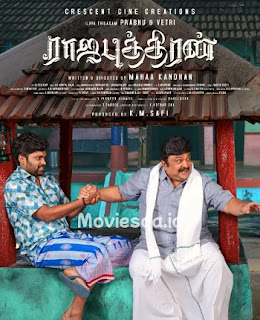Classic cars are more than just vehicles—they are investments, hobbies, and pieces of automotive history. Insuring a classic or vintage car requires specialized coverage that differs from standard auto insurance. Classic car insurance is designed to protect the unique value and needs of collectible vehicles, ensuring they remain safeguarded against accidents, theft, or damage.
1. What Is Classic Car Insurance?
Classic car insurance provides tailored coverage for vintage, collectible, or antique vehicles:
- Agreed Value Coverage: The insurer and owner agree on the car’s value upfront, ensuring full payout in case of a total loss.
- Specialized Coverage Options: Includes protection for spare parts, show participation, and occasional usage.
- Flexible Usage Terms: Often allows limited mileage and usage restrictions for leisure or exhibition purposes.
This type of insurance recognizes the unique value of classic cars beyond standard market depreciation.
2. Who Needs Classic Car Insurance?
- Owners of Vintage Vehicles: Cars that are 20 years or older, or classified as collector vehicles.
- Investors in Classic Cars: Vehicles purchased as investments may appreciate over time.
- Car Enthusiasts and Hobbyists: Those who participate in car shows, exhibitions, or weekend drives.
- Drivers with Unique or Rare Cars: Coverage is tailored to vehicles that are irreplaceable or highly customized.
Standard auto insurance often undervalues classic cars, making specialized coverage essential.
3. How Classic Car Insurance Works
- Vehicle Appraisal: An agreed-upon value is set based on market value, rarity, and condition.
- Policy Customization: Coverage options include agreed value, spare parts, liability, and roadside assistance.
- Limited Use: Many policies require the car to be used for special occasions, shows, or leisure rather than daily commuting.
- Claim Process: In case of damage or theft, the insurer pays the agreed value or covers repairs using original parts.
Classic car insurance ensures that the true value of your vehicle is protected.
4. What Is Covered and What Is Not
Covered:
- Agreed value payout for total loss
- Accidental damage and collisions
- Theft and vandalism
- Spare parts and restoration expenses
- Liability coverage during use
Not Covered:
- Regular wear and tear
- Damage from unauthorized use
- High-risk driving events unless specified
- Mechanical failures unrelated to accidents
Understanding coverage specifics prevents surprises when filing a claim.
5. Benefits of Classic Car Insurance
- Financial Protection: Ensures full value compensation for rare or vintage vehicles.
- Specialized Services: Offers assistance with restoration, spare parts, and show participation.
- Peace of Mind: Protects against theft, accidents, and damage that can devalue the car.
- Tailored Policies: Designed for limited usage and hobbyist driving patterns.
Classic car insurance provides reassurance that your prized vehicle is fully protected.
6. Factors Affecting Classic Car Insurance Costs
- Vehicle Age and Rarity: Older or rarer cars may cost more to insure.
- Usage: Limited mileage policies often reduce premiums.
- Location: Areas with higher theft or accident rates may increase costs.
- Storage: Secure garages or storage facilities can lower premiums.
- Driver Experience: History of claims and driving experience can affect rates.
Understanding these factors helps owners balance cost and protection.
7. Tips for Choosing Classic Car Insurance
- Get a Professional Appraisal: Accurate valuation ensures proper coverage.
- Compare Policies: Look for insurers specializing in classic or collectible cars.
- Understand Usage Restrictions: Ensure your driving habits comply with policy limits.
- Maintain Documentation: Keep maintenance records, restoration receipts, and photographs for claims.
- Review Annually: Adjust coverage as the car appreciates or restoration work is completed.
Following these tips ensures your classic car remains fully protected and valued.
Conclusion
Classic car insurance is essential for owners of vintage, collectible, or rare vehicles. It provides specialized coverage that protects the true value of your car, covering accidents, theft, and restoration costs. By understanding how classic car insurance works, evaluating your vehicle’s needs, and selecting the right policy, you can enjoy your collectible vehicle with confidence and peace of mind, knowing it is safeguarded for years to come.
Download count: 7





